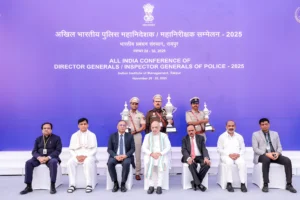
Congress Leader Abhishek Manu Singhvi Opposes Rahul Gandhi's 'Jitani Abadi, Utna Haq' Demand
The Bihar Caste Census has been a topic of discussion in India, particularly in political circles. On October 2nd, the Bihar government released the caste-based census data. This release sparked a response from various political leaders, including Rahul Gandhi, a prominent Congress party leader.
Caste-based census data
Rahul Gandhi has been advocating for caste-based census data for some time. When the Bihar government released the data, he tweeted that the census revealed that in Bihar, the combined population of OBC (Other Backward Classes), SC (Scheduled Castes), and ST (Scheduled Tribes) is 84%. He also highlighted that out of the 90 secretaries in the central government, only 3 belong to the OBC category, despite OBCs constituting a significant portion of the population. Rahul Gandhi emphasized that understanding India’s caste-based demographics is crucial, and he supported the idea that “as many people as there are, that is our right.”
बिहार की जातिगत जनगणना से पता चला है कि वहां OBC + SC + ST 84% हैं।
केंद्र सरकार के 90 सचिवों में सिर्फ़ 3 OBC हैं, जो भारत का मात्र 5% बजट संभालते हैं!
इसलिए, भारत के जातिगत आंकड़े जानना ज़रूरी है। जितनी आबादी, उतना हक़ – ये हमारा प्रण है।
— Rahul Gandhi (@RahulGandhi) October 2, 2023
Response to Rahul Gandhi’s statement
In response to Rahul Gandhi’s statement, Abhishek Manu Singhvi, another prominent leader from the Congress party, made a significant statement. Singhvi argued that equality of opportunity doesn’t necessarily translate to equality of outcomes. He stressed the importance of fully understanding the implications of the census data, suggesting that it might ultimately lead to issues related to identity politics and reinforce caste-based divisions.
Equality of opportunity is never the same as equality of outcomes. People endorsing #jitniabadiutnahaq have to first completely understand the consequences of it. It will eventually culminate into majoritarianism.
— Abhishek Singhvi (@DrAMSinghvi) October 3, 2023
Release of Bihar caste census data
The release of the Bihar caste census data has brought the debate on the reservation system and affirmative action policies in India to the forefront. Rahul Gandhi’s call for a caste-based census is rooted in the belief that it can help in ensuring equitable representation for historically disadvantaged groups, while Abhishek Manu Singhvi’s comments raise concerns about the potential challenges in implementing such policies. The discussion continues to be a critical aspect of India’s socio-political landscape.
Nitish Kumar’s statement
Bihar’s Chief Minister Nitish Kumar stated that the recent caste-based census not only revealed information about castes but also provided insights into the economic status of all communities. He mentioned, “On the occasion of Gandhi Jayanti, the caste-based census figures were released in Bihar.”
He further explained, “The proposal for caste-based enumeration in the legislature was passed unanimously. The consent of all nine parties in the Bihar Legislative Assembly was obtained, and the state government was given permission to conduct the caste-based census using its resources.”
He went on to say that a meeting of all nine parties in the Bihar Legislative Assembly would soon be convened to inform them about the results of the caste-based census. Additional Chief Secretary Vivek Kumar Singh added, “The Extremely Backward Class constitutes 36.01%, the General category is 15.52%, and the Other Backward Classes (OBCs) account for 27%.”
To read more such news, download Bharat Express news apps


















